Poly Whey as a coating for wood counter tops
washworker
9 years ago
Featured Answer
Comments (17)
CEFreeman
9 years agowashworker
9 years agoRelated Professionals
Hershey Kitchen & Bathroom Designers · Pleasant Grove Kitchen & Bathroom Designers · Elk Grove Village Kitchen & Bathroom Remodelers · Galena Park Kitchen & Bathroom Remodelers · Garden Grove Kitchen & Bathroom Remodelers · Olney Kitchen & Bathroom Remodelers · Phillipsburg Kitchen & Bathroom Remodelers · Mountain Top Kitchen & Bathroom Remodelers · Canton Cabinets & Cabinetry · Harrison Cabinets & Cabinetry · South Gate Cabinets & Cabinetry · Foster City Tile and Stone Contractors · Lake Butler Design-Build Firms · Oak Hills Design-Build Firms · Suamico Design-Build Firmscrl_
9 years agoCEFreeman
9 years agowashworker
9 years agoCEFreeman
9 years agoCircus Peanut
9 years agowashworker
9 years agowashworker
9 years agoCEFreeman
9 years agoCircus Peanut
9 years agowashworker
9 years agogreenhaven
9 years agoannkh_nd
9 years agowashworker
9 years agogreenhaven
9 years ago
Related Stories
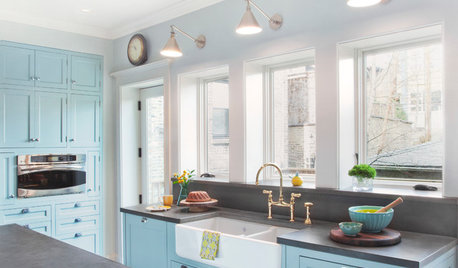
KITCHEN BACKSPLASHES10 Top Backsplashes to Pair With Concrete Counters
Simplify your decision making with these ideas for materials that work well with concrete
Full Story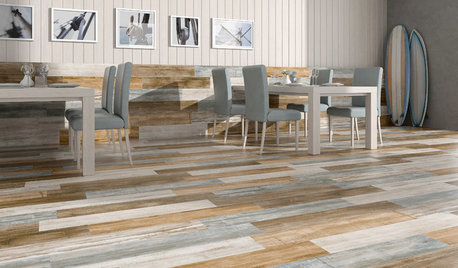
TILETop Tile Trends From the Coverings 2013 Show — the Wood Look
Get the beauty of wood while waving off potential splinters, rotting and long searches, thanks to eye-fooling ceramic and porcelain tiles
Full Story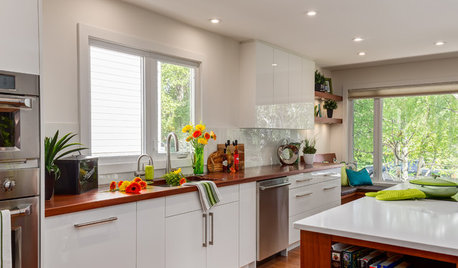
KITCHEN DESIGNThe Best Backsplashes to Pair With Wood Counters
Simplify your decision-making with these ideas for materials that work well with wood counters
Full Story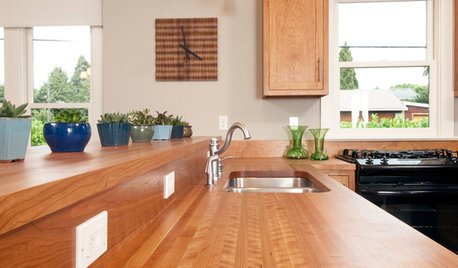
KITCHEN DESIGNWonderful Wood Countertops for Kitchen and Bath
Yes, you can enjoy beautifully warm wood counters near water sans worry (almost), with the right type of wood and sealer
Full Story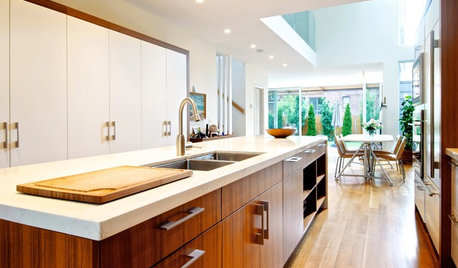
KITCHEN DESIGNSee How Wood Warms Modern White Kitchens
Have your shining all-white kitchen and warmth too, with this natural material that keeps starkness at bay
Full Story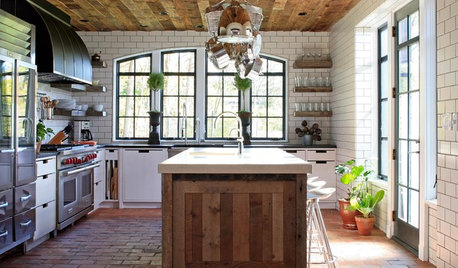
KITCHEN DESIGNWhat to Know About Using Reclaimed Wood in the Kitchen
One-of-a-kind lumber warms a room and adds age and interest
Full Story
ENTRYWAYSHow to Make the Most of Your Entry (No Coat Closet Required)
A well-designed foyer offers storage, seating and other features to help you get out the door on time and looking good
Full Story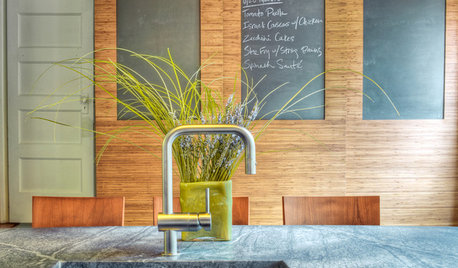
MOST POPULARYour Guide to 15 Popular Kitchen Countertop Materials
Get details and costs on top counter materials to help you narrow down the choices for your kitchen
Full Story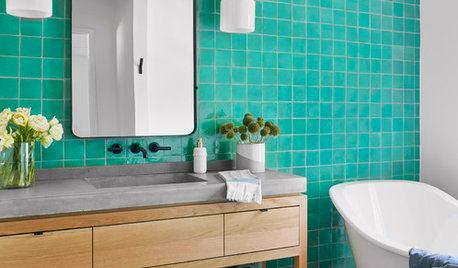
BATHROOM DESIGNBathroom Countertops 101: The Top Surface Materials
Explore the pros and cons of 7 popular bathroom countertop materials
Full Story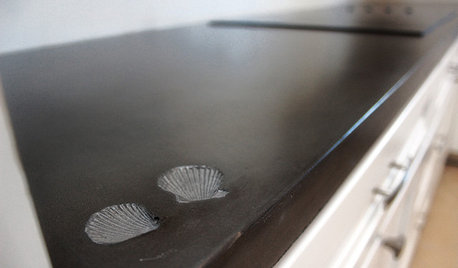
KITCHEN COUNTERTOPSElephants of the Kitchen? What to Know About Concrete Counters
Concrete countertops are beautiful, heavy and cool — and have their own peculiarities. And a lot in common with certain gray pachyderms
Full StoryMore Discussions









kge728